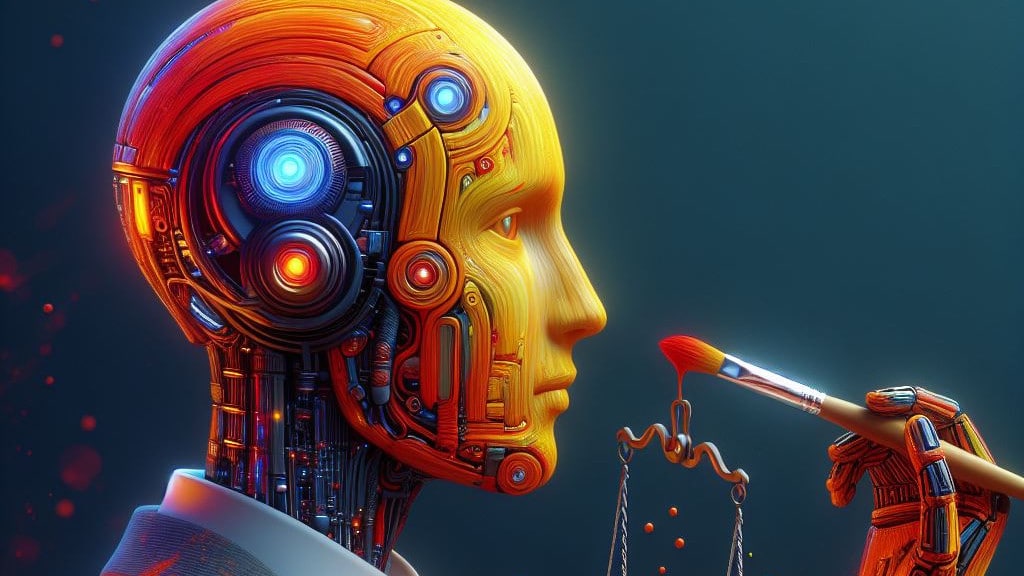AI Industry Will Face ‘Copyright’ as the Biggest Issue in 2024


In Brief
The surge in AI-generated content, from art to music and beyond, has sparked a wave of copyright concerns in the tech landscape.

The rapid rise of AI technology has ushered in a new era of creativity and innovation. However, this transformative wave is not without its drawbacks.
For instance, a US media organization and newspaper The New York Times filed a lawsuit against AI research organization OpenAI and multinational technology corporation Microsoft, alleging copyright infringement. The complaint accuses both companies of utilizing millions of articles from the newspaper without permission for training AI technologies.
In the United States, a total of nine class-action lawsuits have been filed against prominent AI firms, among them are OpenAI, Meta and Google’s parent company, Alphabet. Notably, the legal proceedings include Getty Images vs Stability AI, a case that is currently under trial in the High Court of London.
It would not be an exaggeration to state that the surge in AI-generated content, from art to music and beyond, has sparked a wave of copyright concerns. Creators, industries and legal minds are grappling with the question of ownership and the blurry lines between machine-generated and human-created works.
Generative AI Leads to Multiple Lawsuits
“Generative AI” models like Open AI’s DALL-E and ChatGPT, Stability AI’s Stable Diffusion and Midjourney’s program, can create new images, text and content in response to user prompts.
These programs are exposed to a vast amount of existing works, including writings, photos, paintings and other artworks, thus prompting lawmakers to delve into questions regarding how these generative AI outputs are potentially infringing on the copyrights of other works.
Getty Images is taking legal action against Stability AI, the creator of Stable Diffusion, for allegedly copying and processing millions of copyrighted images, along with their metadata, without permission or compensation. Similarly, TikTok recently settled a lawsuit with voice actress Bev Standing, who claimed the platform used her voice without permission for its text-to-speech feature.
Recently, artists Sarah Anderson, Kelly McKernan and Karla Ortiz jointly filed a class-action copyright infringement lawsuit against both Stability AI and Midjourney, both users of Stable Diffusion. The artists argue that their work was used to train Stable Diffusion, and the images generated in their style directly compete with their creations.
It thereby raises questions about the fair use of artists’ work in the development of AI-generated content.
Despite all this, there remains some ray of hope. In a recent legal ruling, federal courts have upheld the US Copyright Office’s position that AI-generated artwork cannot be copyrighted. The decision, issued in August 2023 by a judge in the US District Court for the District of Columbia, favored the Copyright Office over computer scientist Stephen Thaler.
Thaler sought copyright protection for an AI-generated image, but the court ruled against him. Despite the setback, Thaler’s legal team intends to appeal.
Future Outlook for AI rights
As we step further into 2024, the future remains uncertain yet promising. The ongoing dialogue between legal experts, industry leaders and technologists will likely shape the trajectory of AI and copyright relations. The year holds the potential for developments in the quest to establish a framework that accommodates both the relentless march of technology and the protection of creative endeavors.
In this dynamic landscape, one thing is clear — the AI copyright conundrum is set to be a defining challenge of 2024, commanding attention and sparking discussions that will reverberate across industries for years to come.
Disclaimer
In line with the Trust Project guidelines, please note that the information provided on this page is not intended to be and should not be interpreted as legal, tax, investment, financial, or any other form of advice. It is important to only invest what you can afford to lose and to seek independent financial advice if you have any doubts. For further information, we suggest referring to the terms and conditions as well as the help and support pages provided by the issuer or advertiser. MetaversePost is committed to accurate, unbiased reporting, but market conditions are subject to change without notice.About The Author
Kumar is an experienced Tech Journalist with a specialization in the dynamic intersections of AI/ML, marketing technology, and emerging fields such as crypto, blockchain, and NFTs. With over 3 years of experience in the industry, Kumar has established a proven track record in crafting compelling narratives, conducting insightful interviews, and delivering comprehensive insights. Kumar's expertise lies in producing high-impact content, including articles, reports, and research publications for prominent industry platforms. With a unique skill set that combines technical knowledge and storytelling, Kumar excels at communicating complex technological concepts to diverse audiences in a clear and engaging manner.
More articles

Kumar is an experienced Tech Journalist with a specialization in the dynamic intersections of AI/ML, marketing technology, and emerging fields such as crypto, blockchain, and NFTs. With over 3 years of experience in the industry, Kumar has established a proven track record in crafting compelling narratives, conducting insightful interviews, and delivering comprehensive insights. Kumar's expertise lies in producing high-impact content, including articles, reports, and research publications for prominent industry platforms. With a unique skill set that combines technical knowledge and storytelling, Kumar excels at communicating complex technological concepts to diverse audiences in a clear and engaging manner.





















































